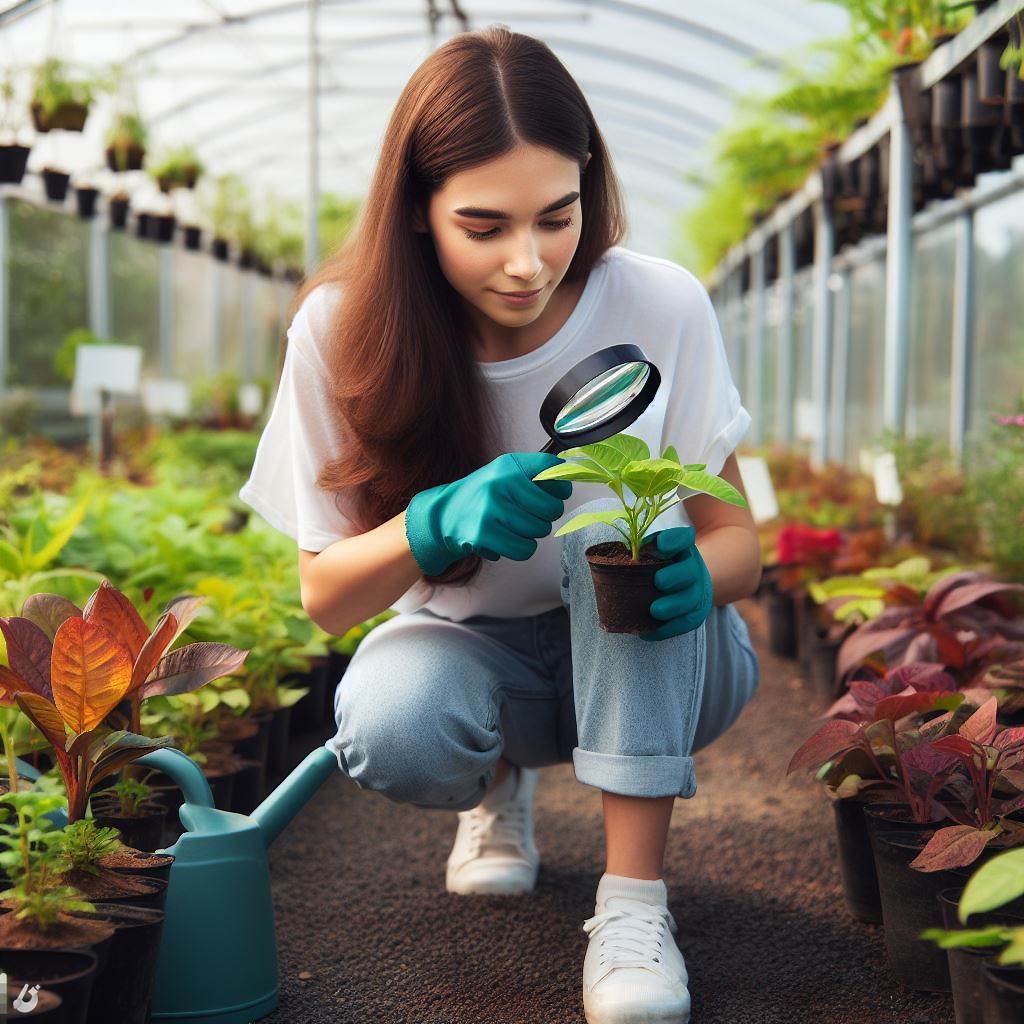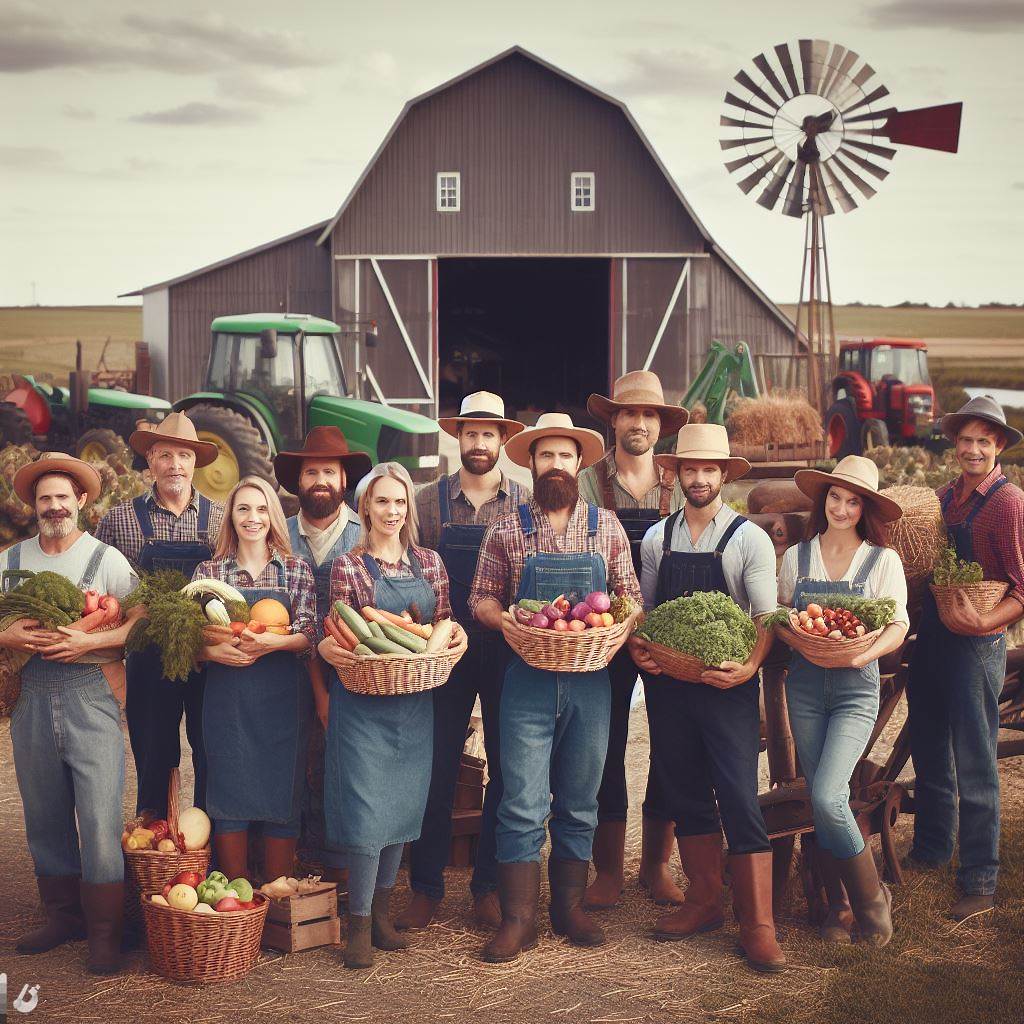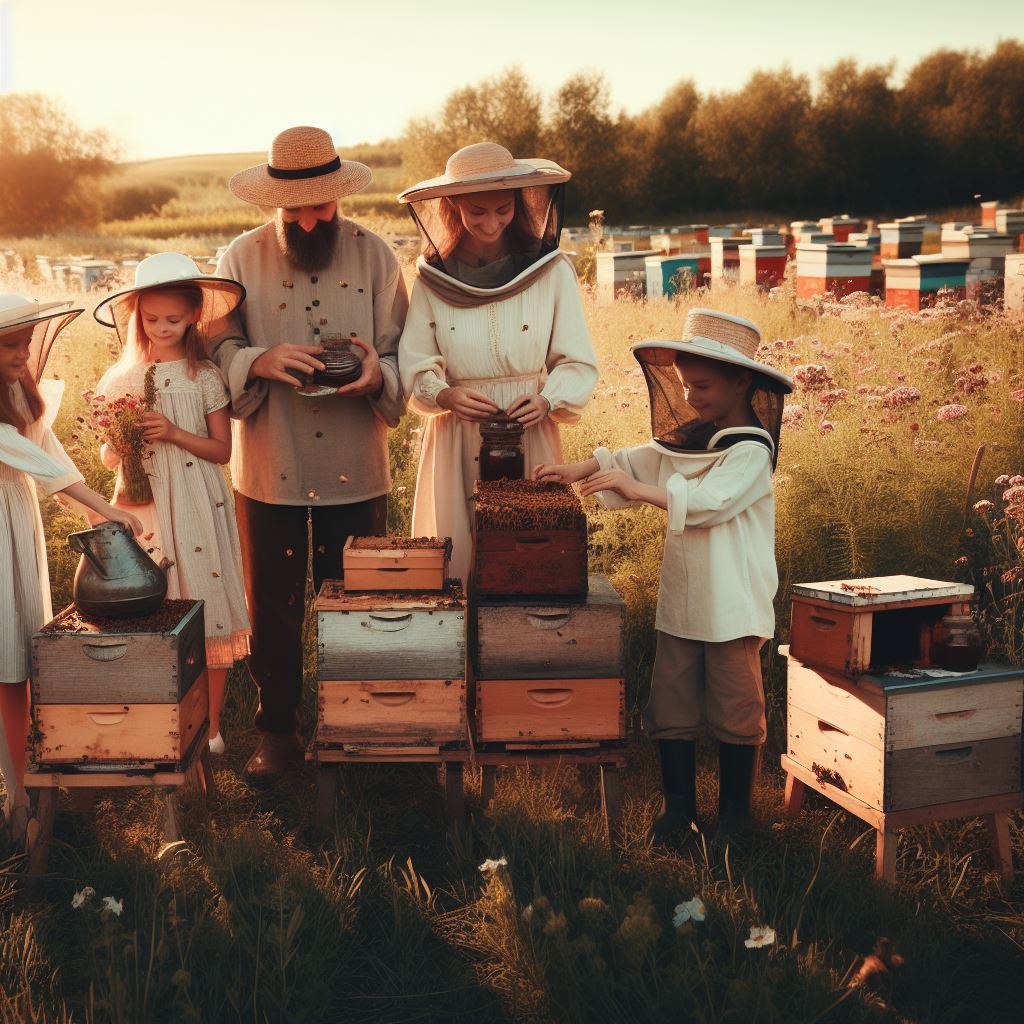Introduction
A. Definition and importance of heirloom and hybrid plants
Heirloom and hybrid plants are two distinct types of crops with different characteristics and genetic backgrounds.
Heirlooms are open-pollinated varieties that have been saved and passed down through generations due to their unique tastes and historical significance.
They offer a connection to the past and preserve biodiversity.
On the other hand, hybrids are the result of crossbreeding two different plants to create offspring with specific traits, such as disease resistance or higher yield.
These plants are bred for consistency and uniformity.
B. Purpose of the blog post – helping readers choose the best option for them
In this blog post, we aim to assist readers in determining which type of plant – heirloom or hybrid – is the most suitable for their gardening needs.
By providing essential information about both options, we hope to empower readers to make an informed decision that aligns with their preferences and goals.
Whether readers prioritize taste, sustainability, or other factors, we will explore the benefits and drawbacks of each type to assist them in finding their ideal choice.
By examining key aspects such as taste, adaptability, seed saving, and overall plant performance, we will present a comprehensive comparison between heirloom and hybrid plants.
Understanding the advantages and disadvantages associated with each category will allow readers to make a well-rounded assessment based on their unique circumstances and preferences.
Ultimately, the goal is to equip readers with the knowledge they need to cultivate a successful and fulfilling garden experience, regardless of the option they choose.
So, let’s dive in and explore the world of heirloom and hybrid plants together!
What are Heirloom Plants?
A. Definition and characteristics
Heirloom plants are open-pollinated varieties that have been handed down through generations.
They are purebred plants with a history dating back at least 50 years.
Heirlooms can be vegetables, fruits, flowers, or herbs.
B. Preservation of genetic diversity
Heirloom plants play a crucial role in preserving genetic diversity.
They are cultivated from seeds that have not been significantly altered by human intervention.
This helps maintain a wide range of traits that can adapt to different growing conditions.
C. Unique flavors and appearances
Heirloom plants offer unique flavors and appearances that are often lost in modern hybrids.
Their flavors can be more robust, intense, and diverse, providing a delightful culinary experience.
Their unique shapes, colors, and sizes also make them visually attractive in gardens and on plates.
Transform Your Agribusiness
Unlock your farm's potential with expert advice tailored to your needs. Get actionable steps that drive real results.
Get StartedD. Genetic stability and predictability
Heirloom plants have genetic stability, meaning their offspring will closely resemble their parents.
This allows gardeners to save and replant seeds from year to year with predictable results.
The reliable traits make them a favorite among growers who want to maintain specific characteristics.
E. Challenges in growing heirlooms
Heirloom plants come with their own set of challenges for growers.
They may be more susceptible to diseases and pests compared to hybrid varieties.
Some heirlooms have longer growing seasons, making them unsuitable for certain climates.
They may also require specific soil conditions or more care in nurturing to reach their full potential.
In short, heirloom plants are open-pollinated varieties that have a rich history and offer unique flavors, appearances, genetic stability, and some challenges for growers.
Growing heirlooms is an excellent way to preserve genetic diversity and enjoy the taste and beauty of traditional plant varieties.
Read: Vertical Gardening: Maximize Your Yield
What are Hybrid Plants?
A. Definition and characteristics
Hybrid plants are created by cross-breeding two different varieties or species of plants to produce offspring with desired traits.
They possess a unique combination of characteristics from the parent plants, making them distinct and often superior.
B. Increased productivity and disease resistance
Hybrid plants are bred to exhibit enhanced productivity, allowing farmers and gardeners to yield higher crop quantities.
Additionally, they possess built-in resistance to various diseases, offering a greater chance of successful cultivation.
C. Improved uniformity and reliability
Hybrids are known for their uniformity in terms of traits, such as size, color, and maturity, making them visually appealing and easier to manage.
They also exhibit consistent performance, ensuring reliable results and reducing the uncertainty associated with traditional varieties.
D. Potential issues with seed saving and genetic diversity
One downside of hybrid plants is that their seeds do not produce offspring with the same qualities as the parent plant.
Therefore, farmers and gardeners cannot save seeds from hybrids for the next season, resulting in additional costs for purchasing new seeds.
This reliance on purchased seeds can lead to a decrease in genetic diversity as fewer traditional varieties are cultivated.
E. Availability of a wide range of options
Hybrid plants offer an extensive selection of options to cater to various preferences and growing conditions.
Whether you’re looking for a specific color, taste, or resistance to pests, hybrids provide a wide array of choices.
In essence, hybrid plants are created through cross-breeding, featuring improved productivity, disease resistance, uniformity, and reliability.
However, their seeds cannot be saved, leading to potential loss of genetic diversity.
Nevertheless, the vast options available make hybrids a popular choice among farmers and gardeners alike.
Read: Herbs & Spices: Growing Your Flavor Garden

Factors to Consider When Choosing Between Heirloom and Hybrid Plants
When deciding between heirloom and hybrid plants, several factors should be taken into consideration.
In this section, we will explore these factors to help you make an informed choice that aligns with your preferences, goals, and growing conditions.
A. Taste Preference and Visual Appeal
One important factor to consider when choosing between heirloom and hybrid plants is your taste preference and visual appeal.
Heirloom plants, being open-pollinated and bred for multiple generations, often offer a wider variety of flavors, colors, and textures.
Their unique characteristics can add diversity and excitement to your meals.
On the other hand, hybrid plants are typically bred for specific traits, such as disease resistance or uniform appearance, which may appeal to those seeking consistent flavor or marketable produce.
B. Growing Conditions and Challenges
The growing conditions of your garden or farm play a crucial role in plant selection.
Showcase Your Farming Business
Publish your professional farming services profile on our blog for a one-time fee of $200 and reach a dedicated audience of farmers and agribusiness owners.
Publish Your ProfileHeirloom plants have been passed down through generations and have adapted to local growing conditions.
This adaptation may make them more resilient and better suited to your specific environment.
Hybrid plants, on the other hand, are often bred to overcome challenges such as pests, diseases, or adverse weather conditions.
So, if your area is prone to specific challenges, hybrid plants might offer better resistance and improved success rates.
C. Long-term Sustainability and Biodiversity
Another factor to consider is the long-term sustainability and biodiversity of your garden or farm.
Heirloom plants contribute to the preservation of traditional crop varieties and the overall genetic diversity of our food system.
By growing heirlooms, you can actively participate in the conservation of agricultural heritage and ensure a wider range of options for future generations.
In contrast, hybrid plants are usually the result of controlled breeding programs and may limit genetic variation, potentially compromising long-term sustainability.
D. Accessibility and Availability of Seeds or Plants
The accessibility and availability of seeds or plants should also be taken into account.
Heirloom seeds are generally open-pollinated and can be saved and shared by gardeners year after year.
This allows for self-sufficiency and the freedom to reproduce plants without relying on external sources.
Hybrid seeds, however, are often the product of controlled crosses and may not produce consistent offspring.
This may require purchasing new seeds each growing season to maintain desired traits, limiting self-sufficiency and potentially increasing costs.
E. Personal Goals and Priorities for Gardening or Farming
Finally, your personal goals and priorities for gardening or farming should be considered.
Heirloom gardening is often associated with fostering a connection to history, heritage, and the slow food movement.
If you value preserving traditional practices, cultural significance, and unique flavors, heirloom plants may align better with your goals.
Hybrid gardening, on the other hand, may prioritize higher yields, productivity, and consistent marketable produce.
If your focus is on efficiency, profitability, or meeting specific market demands, hybrid plants might be the better choice.
Basically, choosing between heirloom and hybrid plants involves considering factors such as taste preference, growing conditions, sustainability, accessibility, and personal goals.
By carefully examining these factors, you can make an informed decision that suits your needs and values in gardening or farming.
Read: Agroforestry: Combining Trees and Crops Wisely
Pros and Cons of Heirloom Plants
Heirloom plants have become increasingly popular among gardening enthusiasts and those interested in sustainable agriculture.
These plants, often passed down through generations, boast unique flavors, appearances, and historical significance.
However, like any other gardening choice, heirlooms have their own pros and cons worth considering.
A. Advantages
- Unique flavors and appearances: One of the main appeals of heirlooms is the variety of tastes and visual characteristics they offer.
From vibrant, multi-colored tomatoes to peppers with distinctive shapes and flavors, heirlooms can provide a culinary experience like no other. - Availability of open-pollinated seeds: Heirlooms are typically open-pollinated, meaning they can be pollinated by natural mechanisms like insects or wind.
This allows gardeners to save their seeds each year, ensuring a continuous supply of plants with the same desirable traits. - Genetic stability for seed saving: Heirloom plants have an inherent genetic stability that makes them reliable for seed saving.
The seeds collected from heirloom fruits and vegetables will typically produce plants with similar characteristics, maintaining the unique qualities of the heirloom variety.
B. Disadvantages
- Challenges in growing and disease resistance: Heirloom plants are often more susceptible to diseases and pests compared to hybrids.
Their genetic makeup, while unique, may lack the disease resistance traits bred into many hybrid varieties.
This can make growing heirlooms more challenging and require extra care and attention. - Limited availability and options: Unlike hybrids, which are specifically bred for desired traits, heirloom varieties can be limited in terms of availability and options.
Gardeners may find it more difficult to find specific heirloom varieties, especially those that are less well-known or less commercially popular. - Potential for lower productivity: Heirloom plants may have lower productivity compared to hybrid plants.
While they often offer superior flavor and unique characteristics, their yield might be relatively lower, resulting in less produce overall.
This lower productivity can impact the profitability of small-scale farmers who rely on high yields.
Heirloom plants have their distinct advantages and disadvantages.
Their unique flavors, appearances, and the availability of open-pollinated seeds make them appealing to many gardeners and farmers.
However, the challenges in growing them, limited availability, and lower productivity compared to hybrids are factors that need to be carefully considered.
Ultimately, the choice between heirlooms and hybrids depends on personal preferences and specific goals in gardening or agriculture.
Read: Urban Farming: Growing Food in City Spaces
Find Out More: Balancing Act: Aquaponic System Tips
Pros and Cons of Hybrid Plants
Hybrid plants have both advantages and disadvantages compared to heirloom varieties.
In this section, we will explore the pros and cons of hybrid plants to help you decide what’s best for your garden.
A. Advantages
1. Increased productivity and disease resistance
One of the main benefits of hybrid plants is their increased productivity.
They are bred to have high yields and are resistant to various diseases, making them a reliable option for gardeners.
2. Improved uniformity and reliability
Hybrid plants are known for their uniformity in terms of size, shape, and color.
This can be beneficial for commercial growers who require consistent produce.
Additionally, hybrids have a higher success rate in germination, ensuring reliable crop production.
3. Wide range of options available
Hybrid plants offer a vast range of options to choose from.
Breeders have developed hybrids in various vegetable and flower varieties, providing gardeners with an extensive selection to suit their preferences and needs.
B. Disadvantages
1. Potential issues with seed saving and genetic diversity
With hybrid plants, saving seeds for future planting can be problematic.
Hybrid seeds do not reproduce true to type, meaning the resulting plants may not possess the desired characteristics of the parent plant.
This limits the genetic diversity and can lead to a loss of traditional heirloom varieties.
2. Lack of unique flavors and appearances
While hybrids may excel in productivity and disease resistance, they often lack the unique flavors and appearances found in heirloom varieties.
Many gardeners appreciate the diversity of heirloom plants, with their distinct tastes, shapes, and colors.
3. Dependence on seed companies
Using hybrid plants often means relying on seed companies for a continuous supply of seeds.
This dependence on commercial sources can be seen as a disadvantage for growers who prefer to save and exchange seeds, as it limits their self-sufficiency and adds additional costs.
To sum it up, hybrid plants offer increased productivity, improved uniformity, and a wide range of options, making them suitable for commercial growers and those looking for reliable produce.
However, they come with potential downsides such as limited genetic diversity, lack of unique traits, and reliance on seed companies.
Consider these pros and cons when making your decision on whether to opt for hybrid plants or heirlooms in your garden.
Conclusion
We have discussed the key points when comparing heirloom and hybrid plants.
It is important for individuals to weigh their personal preferences and gardening goals.
Additionally, considering long-term sustainability and biodiversity is crucial in making a decision.
It is essential to reiterate that the choice between heirloom and hybrid plants depends on individual circumstances and needs.
Heirlooms, cherished for their rich history and unaltered genetics, offer a taste of tradition.
On the other hand, Hybrids, crafted for resilience and uniformity, cater to practical needs.
Showcase Your Farming Business
Publish your professional farming services profile on our blog for a one-time fee of $200 and reach a dedicated audience of farmers and agribusiness owners.
Publish Your ProfileDetermine your priorities and gardening style to make the best choice for a bountiful and satisfying harvest.
Remember, the decision is yours, shaped by the flavors you crave and the gardening experience you seek.
Embrace the diversity of choices in the world of seeds, and let your garden reflect your unique taste and preferences.
Happy gardening!




